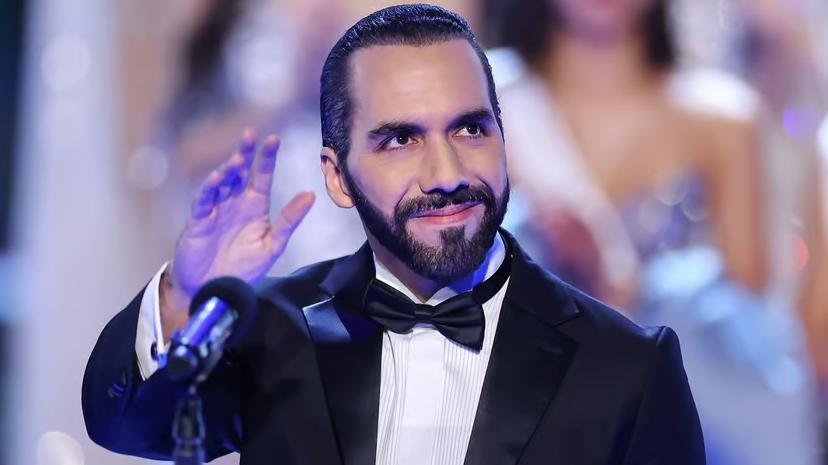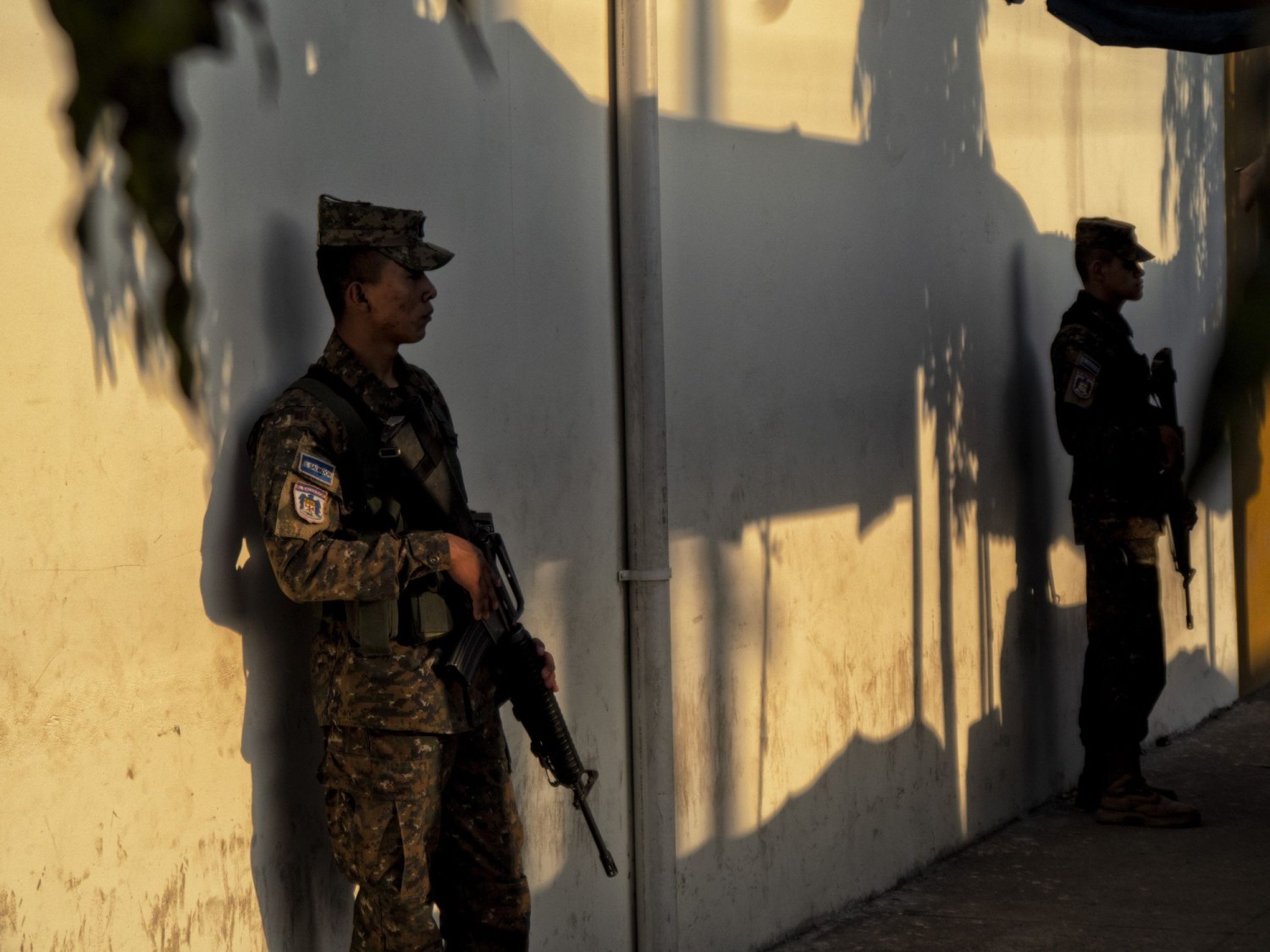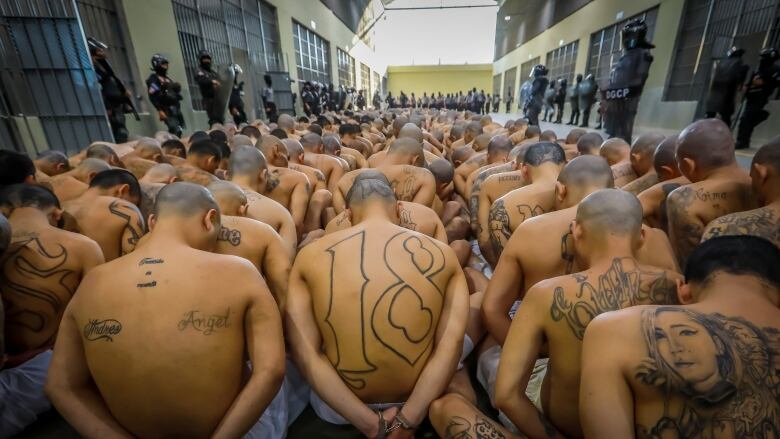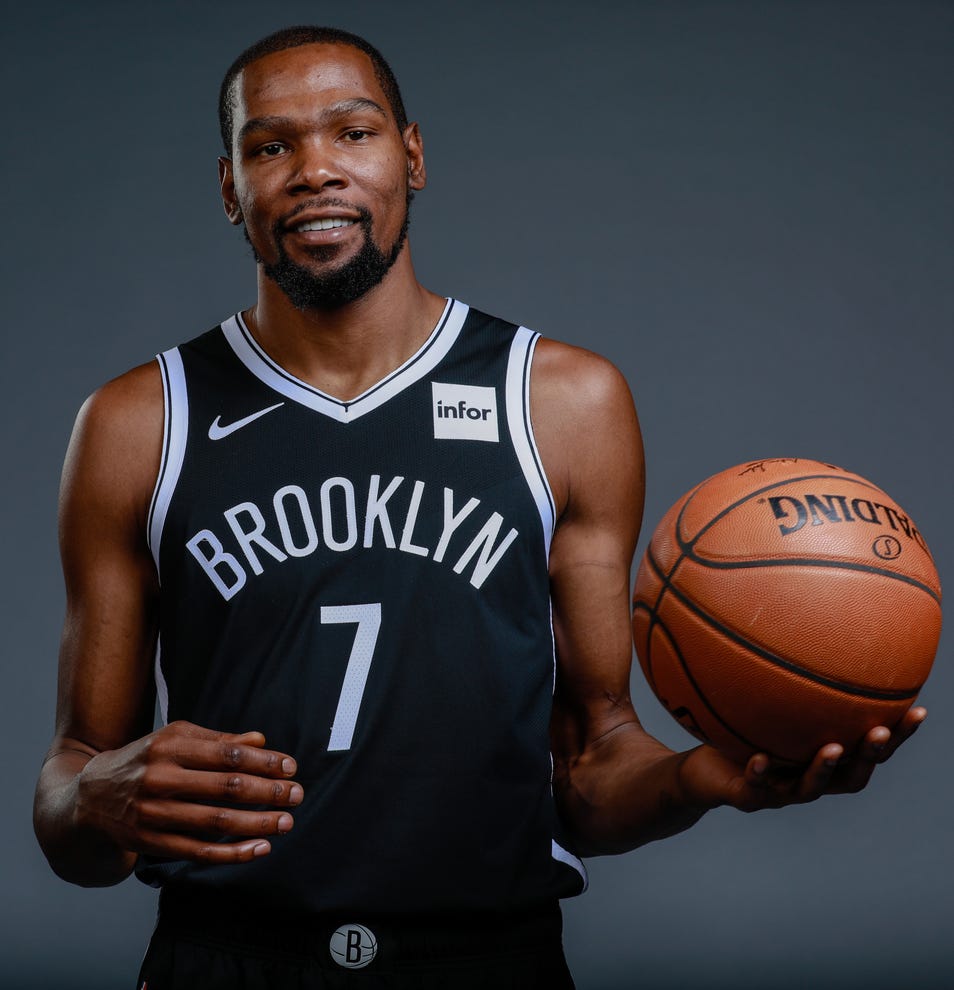Gangsters in El Salvador are terrified of strongman Nayib Bukele

When nayib bukele, El Salvador’s president, described himself as the “world’s coolest dictator”, people paid too much attention to the first part of that phrase, and not enough to the second. Whether designer stubble, expensive sunglasses and incessant boasting on social media count as “cool” is of no consequence. Whether another Latin American country is embracing dictatorship matters rather more.
On February 4th El Salvador is holding elections. Mr Bukele is constitutionally barred from standing for a second term. Yet he is standing, having confected a Putinesque workaround to dodge term limits. And he is certain to win, having brought peace to a country previously terrorised by criminal gangs. He is one of the most popular leaders in the world. Many politicians in the region wonder if they should emulate him.
Gang violence, largely fuelled by the drugs trade, is a huge problem in Latin America. In some countries gangs can challenge the authority of the state, corrupting officials, victimising citizens and crippling the legitimate economy. Leaders everywhere must decide, in tackling gangs, what is the right balance between respecting civil liberties and protecting the public. Mr Bukele has shown what can be done if one disregards the former in pursuit of the latter.
Faced with a security crisis when he took office in 2019, he has since allowed police to detain anyone whom they suspect (or claim to suspect) of gang ties. More than 74,000 people—equivalent to 8% of the young male population—have been arrested. Hardly any have had proper trials. In some ways, his tactics have worked. The murder rate has fallen from 51 per 100,000 people to three, a huge improvement. Ordinary folk were previously too scared to testify against gangs. Now, their testimony is not needed: any gangster who walks down a street demanding protection money can be arrested on the basis of an anonymous phone call. Normal life has returned to bullet-pocked neighbourhoods.
This has had economic consequences. Gang crime used to cost a staggering 16% of gdp, by one estimate. As safety has improved, small businesses have re-opened or expanded. Investment by multinational firms has picked up, too, and the price of the country’s government debt, which had collapsed to distressed levels in 2022, has bounced. JP Morgan Chase, a bank, reckons El Salvador’s potential annual growth rate has risen from 2% to about 3%. The number of Salvadoreans trying to cross the border from Mexico into the United States fell by a third in the last fiscal year.
The change is so dramatic that other countries, in Latin America and beyond, have noticed. The governments of Peru and Honduras have copied elements of Mr Bukele’s programme. So has Ecuador, where gangs in recent months have assassinated a presidential candidate, set off bombs, stoked prison riots and invaded a live television broadcast. Ecuador’s president, Daniel Noboa, has declared a state of emergency and sent the army to police streets and prisons, citing Mr Bukele as his inspiration. In much of the region, growing disillusion with democracy is fed by a sense that governments are not keeping the public safe. According to Latinobarómetro, a pollster, 54% of Latin Americans would not mind if an undemocratic regime came to power, so long as it solved problems—up from 44% in 2002.
One of the first obligations of any government is to provide security. On this score, Mr Bukele has made a difference, at least in the short term. Yet there are enormous downsides to his approach. Huge numbers of innocent Salvadoreans have been imprisoned, devastating their families emotionally and financially. Most remain locked up in grim, overpacked prisons. Mr Bukele plans eventually to hold “collective trials”, with hundreds of suspects in a single hearing and little chance for any of them to mount a coherent defence.
Mr Bukele has also used his crusade for public order as an excuse to move towards authoritarianism. He has used soldiers to intimidate lawmakers. He has purged and packed the judiciary. He has imposed a “temporary” state of emergency, which keeps being extended. Journalists face prison if they report on the gang crackdown in a way that “creates panic”. Election rules have been tweaked to give the ruling party an advantage. The powers Mr Bukele has amassed are enough to cow the press, the judiciary and his opponents. When re-elected, he will no doubt continue to dismantle checks and balances. If, one day, Salvadoreans tire of him, they may find it hard to remove him. And he is only 42.
One lesson is that politicians who respect the rule of law must take street-level crime seriously or risk being outflanked by strongmen. Mr Bukele warns that if the opposition were to win, they would “let all the gangsters free”, as one campaign ad put it. The best way to reduce gang violence in Latin America would be to legalise drugs everywhere, removing the largest prize over which gangsters fight. This would not be a panacea—the gangs in El Salvador made their money largely from extortion. And it is not going to happen soon—the United States would make life unpleasant for any country that tried it. So leaders who care about civil liberties must do the hard, patient work of figuring out how to fight crime without trampling on them. That means training police better to investigate crimes, and speeding up trials so suspects don’t spend years in cells awaiting their day in court, during which they may be recruited by gangs. It does not mean using the army as cops.
The other lesson is that voters attracted to the Bukele model—a messianic leader who steadily accumulates more powers to “protect” the nation—should remember that this story seldom ends well. Nicaragua’s once-fashionable dictator, Daniel Ortega, now runs the country like a gang boss himself. Venezuela’s Nicolás Maduro, eager to distract attention from the economic collapse his cronyism has caused, recently announced a plan to annex two-thirds of neighbouring Guyana. Tattooed gangsters are terrifying. But an unconstrained ruler can be even more so. ■
Keywords
Newer articles
<p>A bill that will ban TikTok in the United States unless its Chinese owner divests from the company has passed overwhelmingly.</p>
Congress gets closer to forcing TikTok to be sold or face US ban: What's ne
Ukraine ‘will have a chance at victory’ with new US aid, Zelenskyy says
Israel Iran attack: Damage seen at air base in Isfahan
Ukraine war: Kyiv uses longer-range US missiles for first time
Who will be Trump’s VP? A shortlist
Congress passes bill that could ban TikTok after years of false starts
House passes potential TikTok ban that could speed through Senate
How soon could US ban TikTok after Congress approved bill?
Finally, America’s Congress does right by Ukraine




